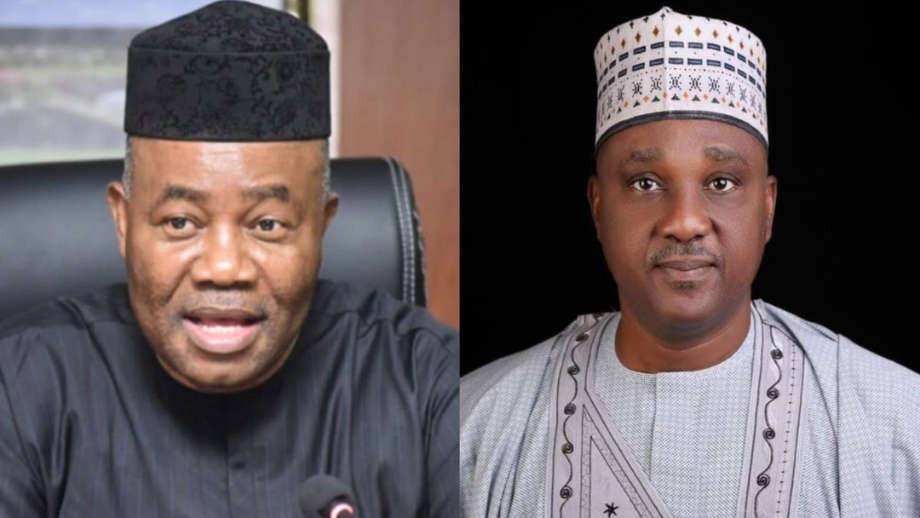The Socio-Economic Rights and Accountability Project (SERAP) has urged the Senate President, Mr Godswill Akpabio and Speaker of House of Representatives, Mr Tajudeen Abbas “to drop the scandalous plan to spend N40bn on 465 exotic and bulletproof cars for members and principal officials, and N70bn as ‘palliatives’ for new members.”

SERAP urged them to “repeal the 2022 Supplementary Appropriation Act to reduce the budget for the National Assembly by N110bn, reflect the current economic realities in the country and address the impact of the removal of fuel subsidy on the over 137 million poor Nigerians.”
SERAP also urged them to “request President Bola Tinubu to present a fresh supplementary appropriation bill, to redirect the N110 billion to address the situation of the over 20 million out-of-school children in Nigeria, for the approval of the National Assembly.”
It said according to reports, “while N70 billion ‘support allowance’ is budgeted for 306 new lawmakers, only N500 billion worth of palliatives is budgeted for 12 million poor Nigerians. N40 billion is also allocated to buy 465 Sports Utility Vehicles (SUVs) and bulletproof cars for members and principal officials.”
In the letter dated July 15, 2023 and signed by SERAP deputy director Kolawole Oluwadare, the organisation said: “This travesty, and apparent conflicts of interest and self-dealing by members of the National Assembly must stop.”
SERAP said, “It is a fundamental breach of their fiduciary duties for members of the National Assembly to arbitrarily increase their own budget and to use the budget as a tool to satisfy the lifestyle of lawmakers.”
The letter read in part: “It is a grave violation of the public trust and constitutional oath of office for members of the National Assembly to unjustifiably increase their own budget at a time when over 137 million poor Nigerians are living in extreme poverty exacerbated by the removal of fuel subsidy.
“We would be grateful if the recommended measures are taken within seven days of the receipt and/or publication of this letter. If we have not heard from you by then, SERAP shall take all appropriate legal actions to compel you and the National Assembly to comply with our request in the public interest.
“Rather than exercising their constitutional and oversight functions to pursue the public interest by considering bills to improve the conditions of the over 137 million poor Nigerians who are facing the impact of the removal of fuel subsidy, the lawmakers seem to be looking after themselves.
“According to reports, no fewer than 107 units of the 2023 model of the Toyota Landcruiser and 358 units of the 2023 model of Toyota Prado would be bought for the use of members of the Senate and the House of Representatives respectively.
“The planned purchase is different from the official bulletproof vehicles expected to be purchased for the four presiding officers of the National Assembly.
“The proposed spending of N110 billion by members of the National Assembly is apparently on top of the N281 billion already provided for the lawmakers in the 2023 National Assembly budget. The proposed spending is also different from the N30.17 billion budgeted for the ‘inauguration expenses’ for new members.”
According to SERAP, spending N110 billion on education to address the menace of out-of-school children is a much better way to spend the fund.
“The problem of out-of-school children has continued to have catastrophic effects on the lives of millions of children, their families and communities.
“By being out of school, these Nigerian children have been exposed to real danger, violence and even untimely death. Redirecting the proposed spending of N110 billion to address the situation of over 20 million out-of-school children across the country would improve access of Nigerian children to quality education.
“Education is both a human right in itself and an indispensable means of realizing other human rights. As an empowerment right, education is the primary vehicle by which economically and socially marginalized adults and children can lift themselves out of poverty and obtain the means to participate fully in their communities,” it said.
